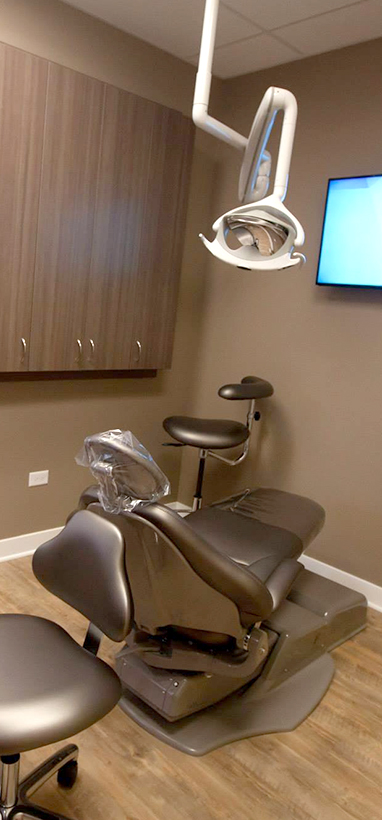1516 Legacy Cir, Naperville, IL 60563
Bad Breath in Children: Causes and Cures

Bad breath, also known as halitosis, isn’t just an adult problem. Children can experience it too, causing concern for parents and embarrassment for them. While occasional bad breath is normal, persistent unpleasant odors can indicate underlying issues.
This blog delves into the world of children’s bad breath, exploring the most common culprits and offering effective solutions to bring back a fresh, healthy smile. We’ll cover everything from poor oral hygiene habits to medical conditions, and provide tips on creating a dental care routine that keeps bad breath at bay.
The Science Behind Bad Breath
Before tackling the causes, let’s understand the science behind bad breath. The primary culprit is a group of bacteria that thrive in the mouth, especially on the tongue and between teeth. These bacteria feed on food particles left behind after meals, producing sulfur compounds that give off a foul odor.
Factors that disrupt the natural balance in the mouth, like poor oral hygiene or dry mouth, can lead to an overgrowth of these bacteria, causing bad breath.
Common Causes of Bad Breath in Children
Now, let’s dive into the specific reasons why your child might have bad breath:
1. Poor Oral Hygiene: This is the most frequent cause of bad breath in children, just like in adults. When kids don’t brush and floss regularly, food particles lodge between teeth and on the tongue. Bacteria feast on these particles, releasing the offensive odors mentioned earlier.
2. Dehydration: Saliva plays a crucial role in maintaining a healthy mouth. It washes away food debris, neutralizes acids produced by bacteria, and promotes natural wound healing. When children are dehydrated, their saliva production decreases, allowing bacteria to flourish and bad breath to develop.
3. Food Choices: Certain foods, like garlic, onions, and strong cheeses, can temporarily cause bad breath. These foods contain strong-smelling compounds that can linger in the breath even after digestion.
4. Mouth Breathing: Chronic mouth breathing can contribute to bad breath. When a child breathes through their mouth instead of their nose, their mouth dries out, allowing bacteria to multiply and causing bad breath. Mouth breathing could indicate enlarged tonsils, allergies, or a deviated septum.
5. Medical Conditions: In some cases, bad breath can be a symptom of an underlying medical condition, such as:
- Sinus infections: When sinuses become inflamed and filled with mucus, it can drip down the back of the throat (postnasal drip) and contribute to bad breath.
- Gastroesophageal reflux disease (GERD): In children with GERD, stomach acid backs up into the esophagus, sometimes reaching the mouth. This acid can irritate the throat and contribute to bad breath.
- Tonsillitis: Inflamed tonsils can trap food particles and bacteria, leading to bad breath.
- Diabetes: Poorly controlled diabetes can cause a fruity-smelling breath.
Solutions for Fresh Breath in Children
Now that you understand the reasons behind your child’s bad breath, here are some steps you can take to address it:
1. Establish a Brushing and Flossing Routine: This is the foundation of good oral hygiene. Make brushing twice a day (morning and night) and flossing once a day a fun and consistent habit. Use a soft-bristled toothbrush with fluoride toothpaste appropriate for your child’s age. Show them the proper brushing technique and supervise younger children to ensure thorough cleaning.
2. Encourage Hydration: Drinking plenty of water throughout the day keeps the mouth moist and helps flush away food particles. Aim for age-appropriate water intake to keep your child well-hydrated.
3. Make Smart Food Choices: While you can’t completely eliminate strong-smelling foods, limiting their intake can help. Encourage balanced meals with plenty of fruits and vegetables, which can help freshen breath.
4. Address Mouth Breathing: If your child consistently breathes through their mouth, consult a pediatrician or dentist. Depending on the cause, treatments might include allergy medications, nasal sprays, or addressing anatomical issues like enlarged tonsils.
5. Manage Underlying Medical Conditions: If a medical condition is suspected to be causing bad breath, discuss this with your child’s pediatrician. Treating the underlying condition will likely resolve the bad breath as well.
Additional Tips for Maintaining Fresh Breath:
Tongue Cleaning: Brushing your tongue is just as important as brushing your teeth! Here’s why and how:
- The Culprit: Our tongues have tiny bumps and grooves that can trap food particles and bacteria. These bacteria release odors that contribute to bad breath.
- Gently Does It: Use a soft-bristled toothbrush or a tongue scraper specifically designed for cleaning tongues. Be gentle to avoid irritating the tongue.
- Brushing Technique: Brush the tongue gently back and forth, reaching as far back as comfortably possible. Rinse thoroughly with water after cleaning.
Diet: What you eat can impact your breath. Here are some tips:
- Hydration is Key: Drinking plenty of water throughout the day helps to flush out odor-causing bacteria and keeps your mouth moist. Aim for eight glasses of water daily.
- Mind Your Munchies: Certain foods, like onions, garlic, and strong cheeses, can contribute to bad breath. If you know you’ll be in a social situation, avoid them beforehand or brush your teeth and tongue right after eating.
- Sugar Savvy: Limit sugary foods and drinks. Bacteria in your mouth feed on sugar, which can increase bad breath.
Lifestyle Habits:
- Don’t Skip Brushing: Brush your teeth at least twice a day, and ideally after every meal. Brushing for two minutes each time is recommended.
- Floss Like a Boss: Flossing daily removes food particles and plaque from between your teeth, where brushing can’t reach.
- Say No to Smoking: Smoking is a major contributor to bad breath and can also stain teeth.
- Dry Mouth Solutions: If you experience chronic dry mouth, talk to your dentist or doctor. There are products like sugar-free lozenges or mouthwash that can help stimulate saliva production.
Regular Dental Checkups: Schedule regular dental checkups and cleanings, typically every six months. These visits allow your dentist to identify and address any underlying issues that might be causing bad breath, such as gum disease or tooth decay.







